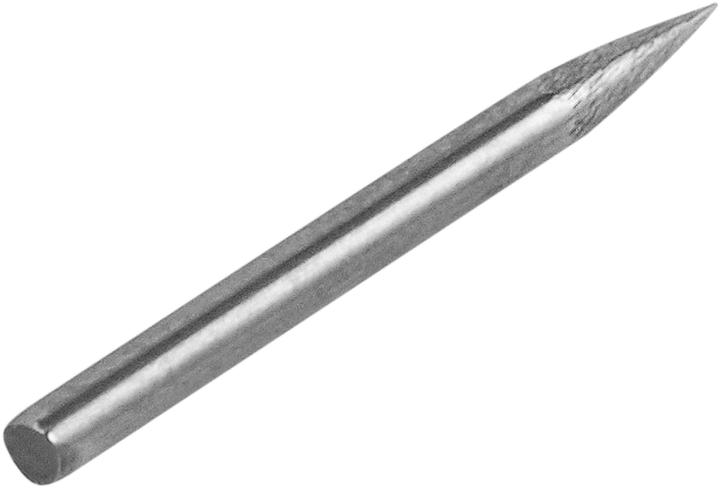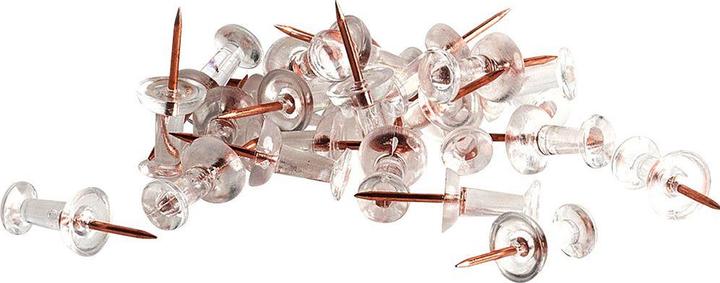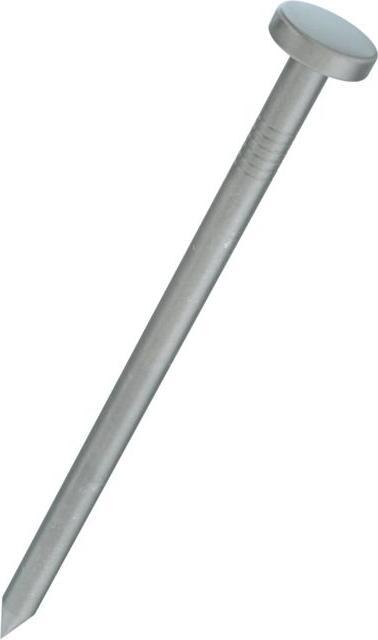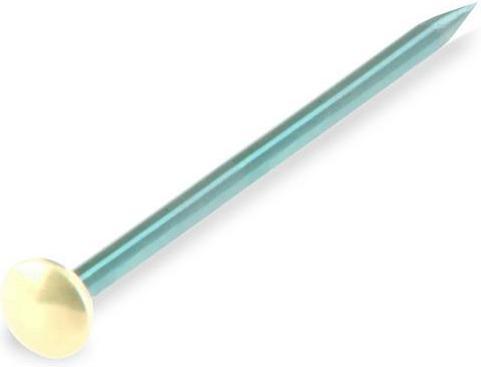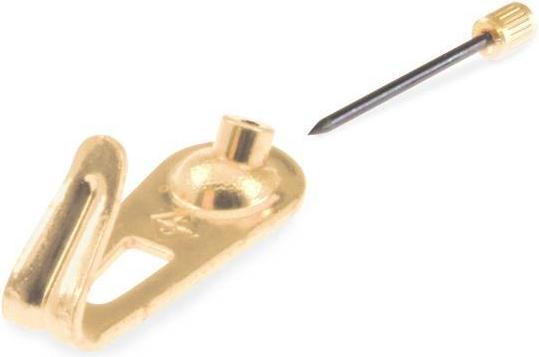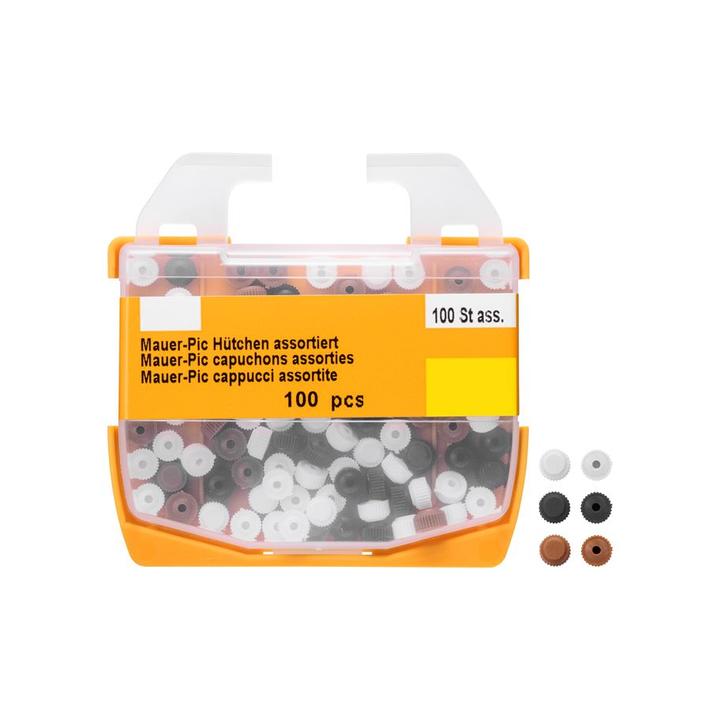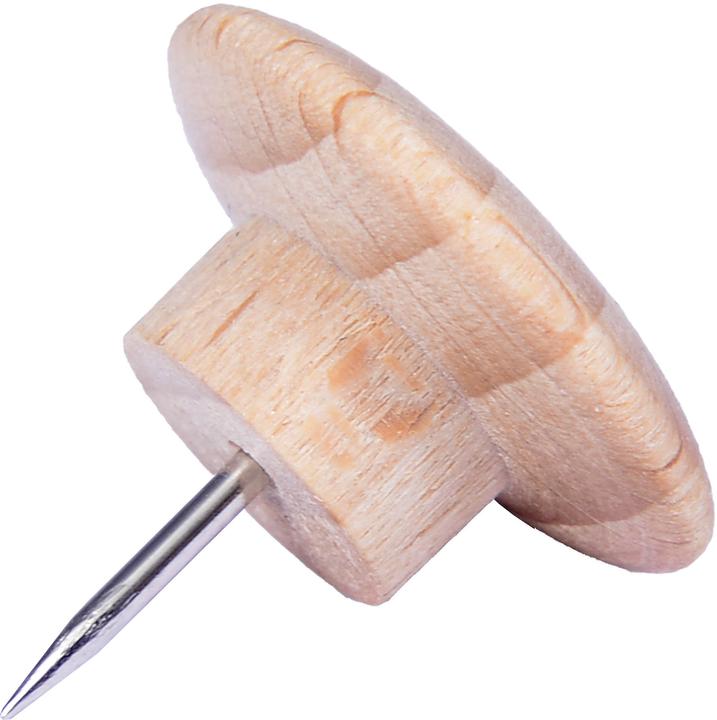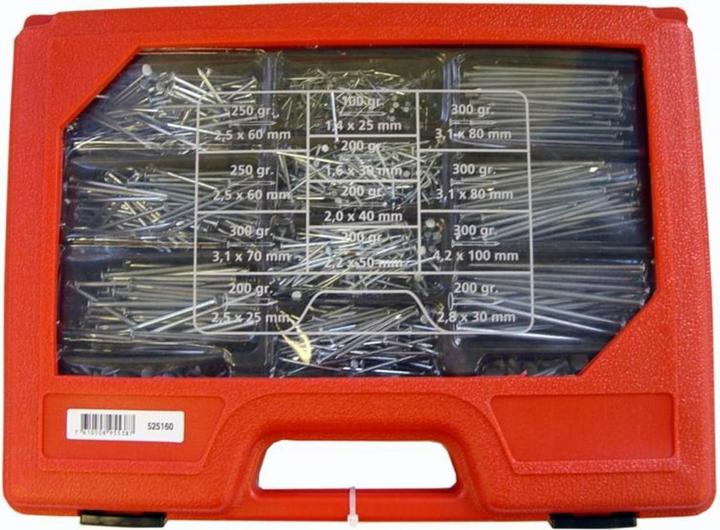
Too Many Nails? How to Choose the Right Ones
Discover the key factors to consider when selecting the perfect nails for your project.
Last updated 2 weeks ago. Automatically generated content.


Select options and limit the number of products
The type of nail determines its suitability for different materials and applications, affecting the strength and durability of the connection. Selecting the appropriate nail type is essential for ensuring the effectiveness of your project, whether in construction, craft, or repair tasks.
Popular options (you can select more than one)
Wire nail
Typical price
10.– to 31.–Characterized by a smooth shank and pointed tip, wire nails are versatile and easy to drive into wood.
Ideal for general woodworking and construction projects, providing reliable fastening for a variety of tasks.
Bestseller
Steel nail
Typical price
25.– to 61.–Made from high-strength steel, these nails offer enhanced durability and resistance to bending.
Perfect for heavy-duty applications, such as framing or masonry, where strength and reliability are critical.
Bestseller
Universal clamp
Typical price
43.– to 150.–Designed with a clamping mechanism to hold materials together securely without penetrating them.
Useful for temporary holds or delicate materials where traditional nails might cause damage.
Bestseller
Thumbtack
Typical price
5.– to 10.–Small, short nails with a flat head, suitable for pinning lightweight items.
Ideal for hanging posters or securing papers, providing easy removal and minimal damage to surfaces.
Bestseller
The length of a nail determines its suitability for various projects, influencing how securely it fastens materials together. Choosing the correct nail length is essential for ensuring the structural integrity and durability of your construction or craft project.
Popular options
Up to 30 mm
Typical price
9.– to 43.–Short nails are ideal for joining thin materials where minimal penetration is needed.
Great for small crafts or upholstery, providing adequate hold without damaging delicate surfaces.
Bestseller
31 - 65 mm
Typical price
15.– to 130.–Medium-length nails offer versatility for general construction and woodworking tasks.
Suitable for securing medium-thickness materials, balancing strength and ease of use for most home improvement projects.
Bestseller
66 - 100 mm
Typical price
17.– to 130.–Long nails are designed for heavy-duty applications requiring deep penetration.
Perfect for structural projects, ensuring a strong hold in thick materials like timber beams or large wooden panels.
Bestseller
Surface finish refers to the coating applied to nails, affecting their durability and resistance to environmental factors. Choosing the right surface finish is crucial for ensuring the nails' longevity and suitability for specific construction or DIY projects.
Popular options (you can select more than one)
Galvanized
Typical price
14.– to 120.–Coated with a thin layer of zinc to prevent rust.
Ideal for outdoor projects as it offers good corrosion resistance, extending nail lifespan.
Bestseller
Hot dip galvanized
Typical price
31.– to 85.–Dipped in molten zinc for a thicker, more robust coating.
Provides excellent protection against harsh weather conditions, making it suitable for heavy-duty outdoor applications.
Bestseller
Brass plated
Typical price
6.– to 48.–Covered with a layer of brass to enhance aesthetic appeal.
Perfect for decorative purposes, adding a touch of elegance while offering some corrosion resistance.
Bestseller
Head shape refers to the design of the top part of the nail, affecting how it is driven into materials and how it interacts with surfaces. Choosing the right head shape is crucial for ensuring the nail's effectiveness in specific applications, such as construction, carpentry, or decorative work.
Popular options (you can select more than one)
Flat head
Typical price
11.– to 45.–Features a broad, flat surface, ideal for providing strong holding power.
Recommended for applications where nails need to be driven flush with the surface, offering a smooth finish.
Bestseller
Countersunk head
Typical price
9.– to 31.–Designed to sink below the surface, allowing for a hidden finish.
Perfect for woodworking or projects where a clean, unobtrusive appearance is desired.
Bestseller
Round head
Typical price
10.– to 140.–Characterized by a domed top, offering decorative appeal.
Suitable for visible applications where aesthetics are important, such as furniture making.
Bestseller
Truss head
Typical price
12.– to 38.–Wide, low-profile head distributes force evenly, reducing material damage.
Ideal for attaching thin materials or when a larger bearing surface is needed to prevent tearing.
Bestseller
The material group of nails determines their durability, appearance, and suitability for different applications. Choosing the right material ensures the nails perform effectively in their intended use, whether for construction, decorative, or specialized purposes.
Popular options (you can select more than one)
Metal
Typical price
12.– to 89.–Includes materials such as steel and aluminum, known for their strength and resistance to bending.
Ideal for heavy-duty construction and projects requiring reliable structural support.
Bestseller
Plastic
Typical price
5.– to 15.–Lightweight and resistant to corrosion, often used for temporary fixtures.
Best suited for projects where minimal weight is important, such as hanging lightweight items.
Bestseller
Wood
Typical price
22.– to 110.–Made from natural wood, providing an aesthetic appeal and easy integration with wooden structures.
Great for woodworking projects where the appearance of nails complements the material being used.
Bestseller
